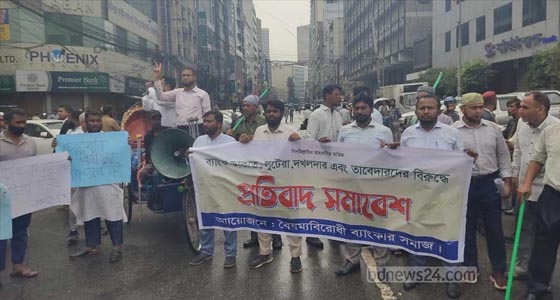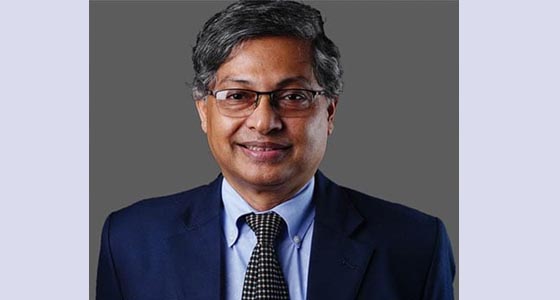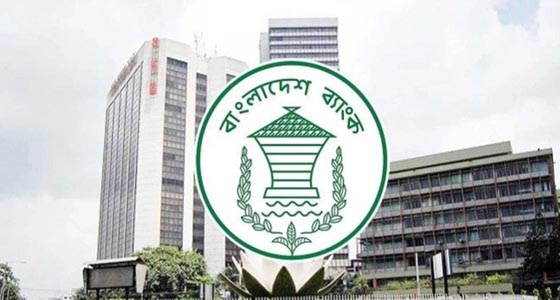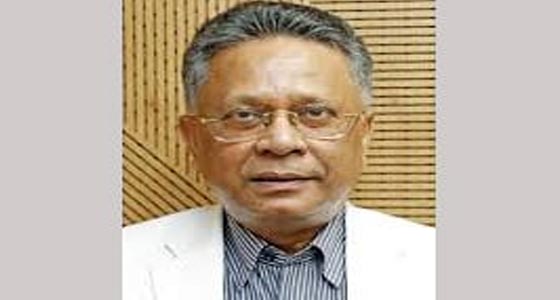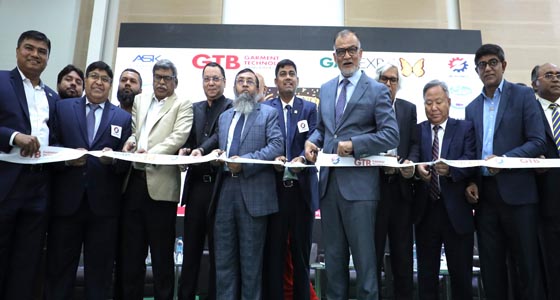Islami Bank’s loan discrepancies: Khatunganj branch alone granted S Alam Group Tk 670bn
- Last Update : 11:21:43 am, Sunday, 18 August 2024
- / 863 Read Count
Staff Correspondent
At the Khatunganj branch of the Islami Bank in Chattogram, the funded loan balance for S Alam Group’s companies has exceeded Tk 220 billion, despite the legal limit for lending to a single company across all bank branches being just over Tk 15 billion
The non-funded loan balance stands at Tk 450 billion, although the allowable limit is Tk 10.42 billion.
Besides Khatunganj, the S Alam Group has secured billions more in loans from other Islami Bank branches nationwide.
This revelation about the large loan amounts follows the fall of the Awami League government and comes amid allegations that the group took control of the bank forcefully through share purchases in 2017.
Muhammed Monirul Moula, the bank’s managing director, has not responded to inquiries about how a branch issued loans far beyond its limit.
Since Aug 5, he has not been in the office and not answered calls or messages.
The bank’s additional managing directors Altaf Hossain, JQM Habibullah, and deputy managing directors Miftah Uddin, Mohammad Akiz Uddin, Kazi Rezaul Karim, Kamal Hossain, and Mohammad Sabbir are also unreachable.
Mohammad Qaisar Ali, additional managing director, resigned under pressure after the fall of the government.
Islami Bank’s capital is Tk 104.14 billion, which allows S Alam Group to borrow a maximum of Tk 15.62 billion in funded loan based on a 15 percent limit of the bank’s capital.
For non-funded loan, the limit is Tk 10.42 billion, which is 10 percent of the bank’s capital.
S Alam Group could have been eligible for up to Tk 26.04 billion in combined funded and non-funded loans, but Khatunganj branch alone shows a loan balance exceeding Tk 670 billion.
Loan were granted to S Alam Group’s companies separately, with the central bank granting this concession.
Bangladesh Bank officials now say the loan limit will be calculated for all the companies of the group together.
Toufic Ahmad, former director general of the Bangladesh Institute of Bank Management, or BIBM, told bdnews24.com: “Such practices have weakened Bangladesh’s financial sector. Steps must be taken to prevent this from happening again.”
LOAN DETAILS
According to records, the loan distribution is as follows: S Alam Refined Sugar Tk 36.09 billion, S Alam Super Edible Oil Tk 32.32 billion, Kemon Steel Tk 33.37 billion, Infinity CR Strips Tk 22.81 billion, Masud Printing Tk 19.60 billion, S Alam Cold Rolled Steel Tk 21.26 billion, Karnaphuli Food Tk 17.18 billion, and S Alam Vegetable Oil Tk 15.51 billion.
In addition to Khatunganj, several other branches in Chattogram, Rajshahi, and Dhaka have provided loans to S Alam Group, bringing the total to Tk 366.80 billion.
For non-funded loans, Tk 150 billion was used for opening letters of credit, and Tk 300 billion was used for foreign bank guarantees for S Alam Power Generation Limited.
A former manager of the Khatunganj branch told bdnews24.com, “During the issuance of these loans, not all legal conditions were met. The companies initially took the loans and then used the loaned funds as collateral. Later, they withdrew that money as well.”
S Alam Cold Rolled Steel provided only Tk 15.3 million, S Alam Super Edible Oil Tk 39.1 million, S Alam Refined Sugar Tk 30 million, and S Alam Vegetable Oil Tk 9.6 million as collateral for their loans, he added.
A senior official of the Bangladesh Bank said, “Companies within the group should not receive more than 15 percent of the bank’s regulatory capital from any of its branches. However, S Alam has used its influence to secure additional loans.”
PROMOTION OF BRANCH MANAGERS
Since S Alam Group took control of Islami Bank in 2017, five managers have served at the Khatunganj branch over seven years.
During this period, the loans were approved, and all these managers were subsequently promoted and transferred to the central office.
The managers are Qaisar, Sabbir, Miftah, Ahsan Ullah, and Mohammad Sirajul Islam.
Jamal Ahmed, the current branch manager of Khatunganj branch, told bdnews24.com: “The bank is initiating new reforms. This branch has issued a significant amount of loans that exceed the limits of the loan approval process. The relevant authorities will address this issue.”
“I will take charge on Sunday, and after assuming responsibility, the matter will be investigated further,” he added.
CENTRAL BANK UNDER SCRUTINY
Zahid Hussain, former lead economist at World Bank’s Dhaka office, said the Bangladesh Bank should bear more responsibility than the Islami Bank board for approving loans beyond limits.
Speaking to bdnews24.com, he said: “The group leveraged its power to extract funds from the banking sector, causing the sector to collapse.
“The central bank has been unable to take effective action against them.”
Ahsan H Mansur, who was appointed as Bangladesh Bank’s governor following the change in government, told bdnews24.com that an audit report will be conducted on the corruption at Islami Bank.
“All issues will be addressed through the legal process, but this will take some time,” he added.
HOW S ALAM GROUP GAINED CONTROL OF ISLAMI BANK
S Alam Group first sat on the board of Islami Bank in 2017 by acquiring shares from the capital market.
A regulation by the Securities and Exchange Commission, or SEC, facilitated this move, allowing any shareholder with a 2 percent stake to become a director.
Subsequent events unfolded, which were detailed in a report by the UK-based magazine The Economist. The report mentioned that on Jan 5, 2017, officials from a law-enforcing agency contacted the chairman, a vice-chairman, and the managing director of Islami Bank. They were then taken from their residences.
Later that day, the trio were forced to resign from their positions.
According to The Economist, within hours, the bank’s board convened a meeting at a hotel to appoint new directors in place of those who had resigned.
Gradually, S Alam Group acquired over 30 perdent of the bank’s shares, both directly and indirectly.
Before S Alam Group’s takeover, foreign investors held about 52 percent stakes, which has now dropped to 13 percent.
Islamic Development Bank, or IDB, Dubai Islamic Bank, Al-Rajhi Group, Kuwait Finance House, and Saudi Arabian company Arabsas Travel & Tourist Agency, along with other institutional and individual investors, gradually sold off their shares.
Jamaat-e-Islami-affiliated organisations like Ibn Sina and Islamic Centre also sold their shares in Islami Bank.
[Writing in English by Arshi Fatiha Quazi and Sheikh Fariha Bristy]

